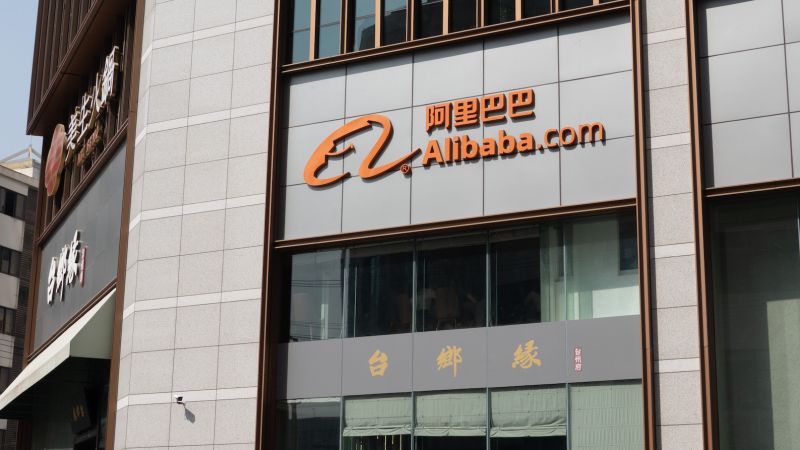Jack Ma Arrived Early in Hong Kong: A Test of Beijing’s Confidence with China’s Digital Economy and the Role of Big Tech
It worked. Shares in Alibaba
(BABA), which has a market capitalization of $260 billion, soared 12% in Hong Kong on Wednesday, following a 14% surge on Wall Street overnight, leading the tech sector’s gains in the Asia Pacific.
Beijing is concerned that private tech firms are too big and powerful. The government wanted to curb the monopolistic nature of many tech companies, imposing fines and banning apps from stores in an attempt to force some firms to completely change their businesses.
Jack Ma returned to mainland China this week, a rare appearance that was seen by many as a sign that the Chinese government is supportive of private business.
Jack Ma’s reappearance appears to be a planned media event intended to boost market sentiment at a critical moment.
In a policy shift, Chinese leader Xi Jinping recently urged the government to support private businesses, while calling on entrepreneurs to play a role in boosting growth and tech innovation, so that China can better counter what he called “containment” and “suppression” from the West led by the United States.
The country’s financial regulatory system is too strict and unfriendly to small businesses according to a once high-profileentrepreneur. As a result, the authorities shelved Ant Group’s planned $35 billion IPO at the last minute.
A sweeping regulatory crackdown on Big Tech followed, which later engulfed China’s most powerful private companies, wiping huge sums off their market value. Alibaba’s stock is still down 70% from its peak just days before regulators abruptly pulled the Ant Group IPO.
After being confirmed as the country’s No 2 official, Li Qiang, a friend of Xi and a trusted ally, followed up by introducing measures to repair ties between the government and the private sector.
Premier Li Taobao of China: The Future of Chinese E-Commerce, Technology, and the Economic Recession After the Pandemic
During his first news conference, Premier Li said that some private entrepreneurs were worried because of incorrect discussions and comments in the society last year.
“Tencent is the obvious [one] next,” Hong said, adding that the social media and gaming giant has already started reducing its stake in portfolio companies, including food delivery company Meituan.
The move marks the most significant overhaul in the company’s 24-year history and will “unlock the value” of its various businesses, it said on Tuesday.
The domestic e-commerce group, which includes Taobao and contributes to a majority of the company’s revenues, will remain a wholly-owned unit. The other five, meanwhile, will have their own CEOs and can pursue separate public listings.
“The market is the best litmus test, and each business group and company can pursue independent fundraising and IPOs when they are ready,” Alibaba CEO Daniel Zhang said in an email to employees.
Citi analysts said Tuesday their target price for Alibaba’s US-listed stock was $156 per share, which is nearly 60% higher than Tuesday’s closing level.
China’s newly minted Premier Li Qiang painted a bullish picture of his country’s economic recovery at a key business forum this week, as Beijing seeks to win the hearts of global investors and economic leaders after emerging from its long pandemic isolation. The governor of China said Thursday that the country’s economic growth is strong, in a keynote speech at a gathering of international business leaders and politicians.
“The [economic] performance in March is even better than January and February’s,” Li said, adding that major indicators such as consumption and investment are improving.
China, he said, will roll out new measures to boost domestic consumption and increase market access for foreign business while ensuring the stability of the financial sector.
A day earlier, Li met IMF President Kristalina Georgieva in Boao, saying that the country is “confident and capable” of hitting this year’s GDP growth target, which is “around 5%.”
The Boao Forum for Asia has been held annually since 2001, but was suspended in 2020 because of the pandemic. The meeting is fully offline for the first time in three years.
Prominent attendees this year include Singapore’s Prime Minister Lee Hsien Loong, Malaysia’s Prime Minister Anwar Ibrahim, and Spain’s Prime Minister Pedro Sánchez.
The slowdown of the Chinese economy: the effects of the zero-Covid policy and private business policies on Chinese business confidence, growth, and unemployment
The slowdown was caused, in part, by systemic issues that have haunted the economy for years, such as massive debt levels and a shrinking work force. But the problems have been exacerbated by the Communist Party’s erratic and draconian zero-Covid policy, which ended late last year, and a sweeping crackdown on private business.
The measures have resulted in weak business confidence, a slump in investment and surging unemployment. The youth jobless rate, in particular, hit more than 18% last month.
For the first time in 25 years, the American Chamber of Commerce in China found in its annual survey of members that fewer than half of the respondents regarded China as one of their top three investment destinations.
The number of businesses that plan to leave over the next three years has doubled according to a survey done by the AmCham in Hong Kong.
